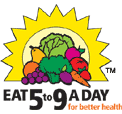Home | FOOD ARTICLES | Food Trivia | Today_in_Food_History | Food_History_Timeline | Recipes | Cooking_Tips | Food_Videos | Food_Quotes | Who’s_Who | Culinary_Schools_&_Tours | Food_Trivia_Quizzes | Food_Poems | Free_Magazines | Food_Festivals_and_Events
Food Articles, News & Features Section
FREE Magazines
and other Publications
Free Professional and Technical Research, White Papers, Case Studies, Magazines, and eBooks
CARROTS
See also: New Colors; What’s Up Doc; Carrot Trivia; Carrot Quotes
Most of us refer to carrots as the vegetable that is good for our eyes. This is because carrots are a good source of vitamin A that is very important for healthy eyesight, skin, growth, and helps our body resist infection. According to a study conducted by researchers of the USDA, eating carrots may lower cholesterol levels. Carrots are also a great source of beta carotene. In fact, carrots contain a group of plant pigments called carotenoids, and beta carotene is a member of this group. These plant pigments were first identified in carrots and therefore their name was derived from the word carrot. Beta carotene is linked to reducing chronic diseases such as cancer & heart disease.

Carrots have a higher natural sugar content than all other vegetables with the exception of beets. This is why they make a wonderful snack when eaten raw and make a tasty addition to a variety of cooked dishes.
Varieties
There are many varieties of carrots, but the variety typically found in supermarkets is from 7–9 inches in length and 3/4–1-1/2 inches in diameter. Carrots are usually sold packaged in plastic bags. Baby carrots were once longer carrots that have been peeled, trimmed to 1-1/2–2 inches in length and packaged. True baby carrots are removed from the ground early and actually look like miniature carrots.
How to Select
Carrots are available and in season all year long. Look for well shaped carrots. Pick carrots that are deep orange in color. More beta carotene is present in carrots that have a darker orange color. Avoid carrots that are crackled, shriveled, soft, or wilted.
Storage
Carrots are best stored between 32–50 degrees in the crisper section of the refrigerator. If you buy carrots with the green tops still on, break off the tops and rinse, place in a plastic bag and store as described above. Storing them in the refrigerator will preserve their flavor, texture, and the beta carotene content. Do not store them with fruits. Fruits produce ethylene gas as they ripen. This gas will decrease the storage life of the carrots as well as other vegetables. This is why it is best to store fruits and vegetables separately.
Preparation
Although carrots lose some of their vitamins when peeled, dishes prepared with peeled carrots taste fresher and better. Cook carrots in a small amount of water until they are tender, or save time and cook them in the microwave. Season with dill, tarragon, ginger, honey, brown sugar, parsley, lemon or orange juice.
Make Carrots Part of Your 5 A Day Plan
Carry raw carrots in a sack lunch, to your next picnic, or in the car when you are on the go. There are many different ways that you can eat raw carrots, and the choices are almost endless. They can be eaten whole, in sticks, cut into rounds, and chopped or shredded in salads. Kids love the mild taste of carrots!
RELATED ARTICLES
Please feel free to link to any pages of FoodReference.com from your website.
For permission to use any of this content please E-mail: james@foodreference.com
All contents are copyright © 1990 - 2025 James T. Ehler and www.FoodReference.com unless otherwise noted. All rights reserved.
You may copy and use portions of this website for non-commercial, personal use only.
Any other use of these materials without prior written authorization is not very nice and violates the copyright.
Please take the time to request permission.

